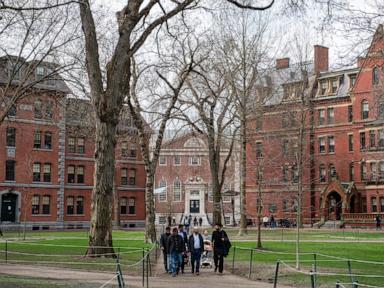The Trump administration has barred Harvard University from enrolling international students, a move that could significantly impact the university’s diverse community. This decision may have far-reaching implications for international education in the United States.
Trump administration bars Harvard from enrolling international students

Key Takeaways:
- The Trump administration has banned Harvard from enrolling international students.
- The decision directly affects Harvard University and prospective international students.
- The policy represents a significant shift in higher education administration.
- Potential implications for international education in the U.S.
- Published by ABC News on May 22, 2025.
Harvard Faces Ban on International Enrollments
The Trump administration has barred Harvard University from enrolling international students. This unexpected decision, announced on May 22, 2025, could have profound effects on the university’s academic environment and the wider landscape of international education in the United States.
Impact on Harvard University
Harvard, renowned for its diverse student body and global reach, now confronts a significant challenge. International students have long been integral to the university’s community, contributing to a rich tapestry of cultural perspectives and academic excellence. The ban on international enrollments may compel Harvard to reassess its admissions strategies and could affect its standing as a global institution.
Effect on International Students
Prospective international students aiming to attend Harvard now face an unprecedented barrier. For many, admission to Harvard represents not only access to world-class education but also opportunities for personal and professional growth. The administration’s decision disrupts these aspirations and raises concerns about the accessibility of U.S. higher education for students worldwide.
Broader Implications for U.S. Education
This policy shift signals a significant change in the United States’ approach to international education. The move may influence other universities and alter the country’s position as a preferred destination for global academic talent. The long-term effects on academic collaboration, research endeavors, and cultural exchange programs remain uncertain.
Looking Ahead
As Harvard navigates this new landscape, the university and its stakeholders are likely to explore responses to address the challenges posed by the ban. The decision by the Trump administration marks a pivotal moment, prompting discussions about the future of international engagement within U.S. higher education.











